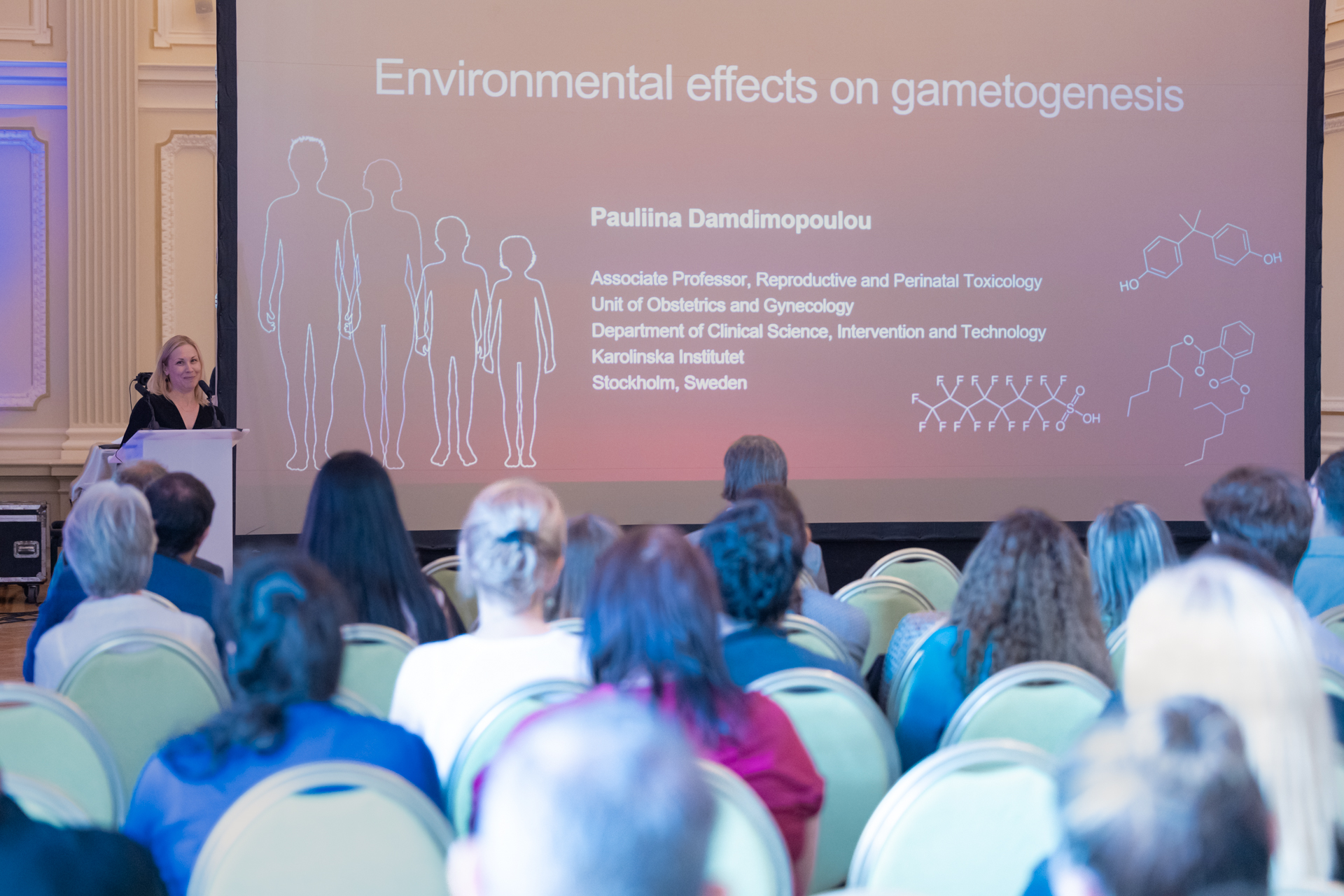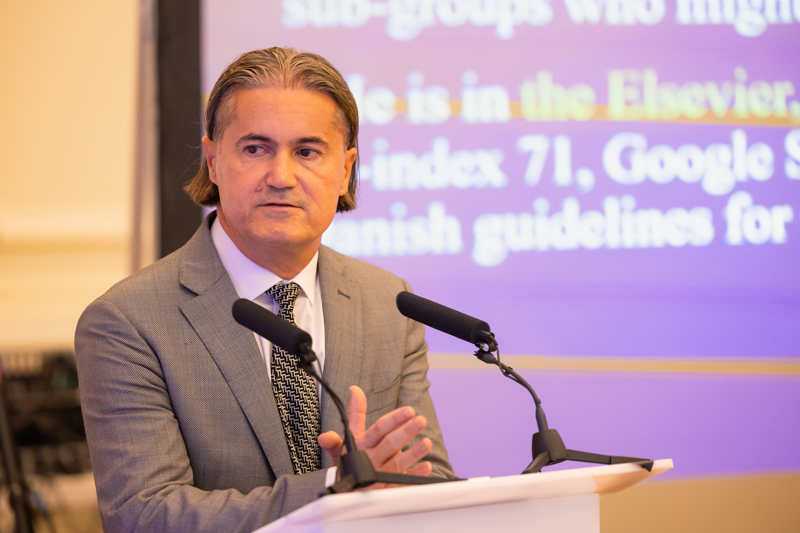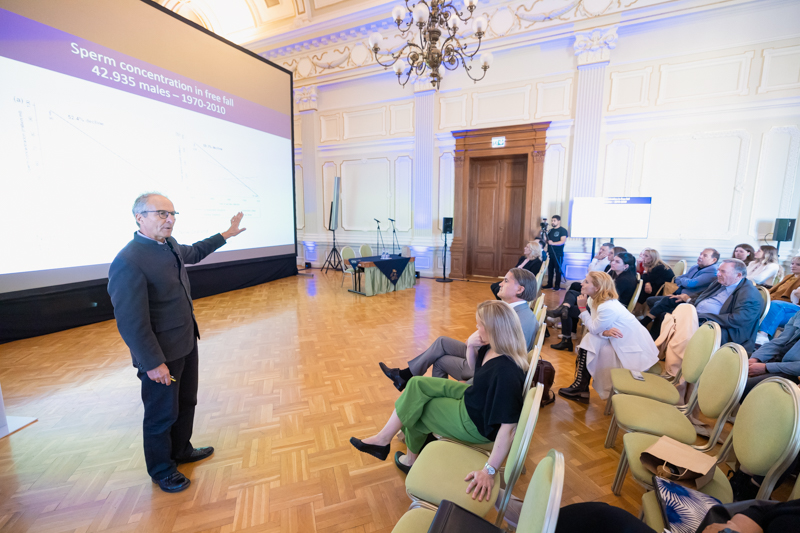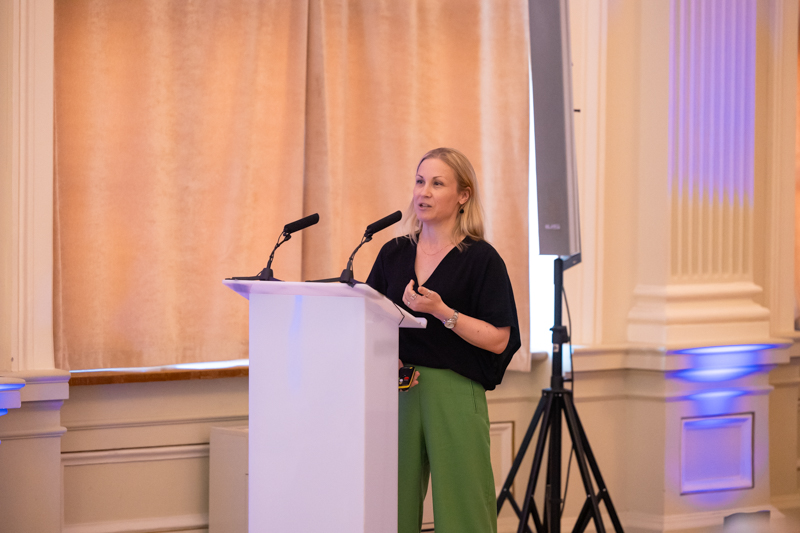
Personalized hormone therapy for men may increase the chances of successful conception – this was the central message at a conference organized by the University of Szeged’s Institute of Reproductive Medicine.
On October 11, the University of Szeged hosted world-renowned researchers and experts for a one-day conference and training event titled The Effect of Gametogenesis and Gamete Development on the Success Rate of In Vitro Fertilization. The event featured four presentations and was accompanied by a press conference, where Dr. János Zádori, Medical Director of the Center for Reproductive Medicine at the University of Szeged, highlighted the new direction that in vitro fertilization (IVF) is taking. He noted that, while efforts have traditionally focused primarily on maternal factors in conception, the time has now come to incorporate complex, personalized hormone therapy for men as well to improve the chances of successful conception.

Dr. János Zádori, Medical Director of the Center for Reproductive Medicine at the University of Szeged
Photo by Ádám Kovács-Jerney
“Recent findings show that, although there are techniques capable of facilitating pregnancy with a low sperm count, the quantity available at the time of treatment still makes a significant difference,” explained Dr. János Zádori. He also pointed out that a three-month treatment regimen can elevate a man’s sperm production to a point where IVF may no longer be necessary.
Speakers at the international conference held in the Main Building of the University of Szeged explored the following questions:
In addition to experts from Hungarian centers for reproductive medicine, the event attracted attendees from neighboring countries, including Slovenia, Serbia, and Romania.
         |
| International conference organized by the Center for Reproductive Medicine at the University of Szeged Photos in the Gallery by Ádám Kovács-Jerney |
The Institute of Reproductive Medicine (RMI) at the University of Szeged performs over a thousand procedures each year, with a current waiting time of 81 days. Couples seeking infertility treatment typically come from Szeged or within a 100-kilometer radius of the city. “European statistics indicate that developed countries average around 1,500 treatments per million residents,” explained Dr. János Zádori. Highlighting Szeged’s long-standing tradition in infertility care, he added that the University of Szeged took over the former Kaáli Institute nearly three years ago. Dedicated to advancing research, the RMI also regularly invites esteemed international experts to keep Hungarian professionals up to date on the latest scientific advancements.
Original Hungarian text by Imre Vida-Szűcs
Photos by Ádám Kovács-Jerney

